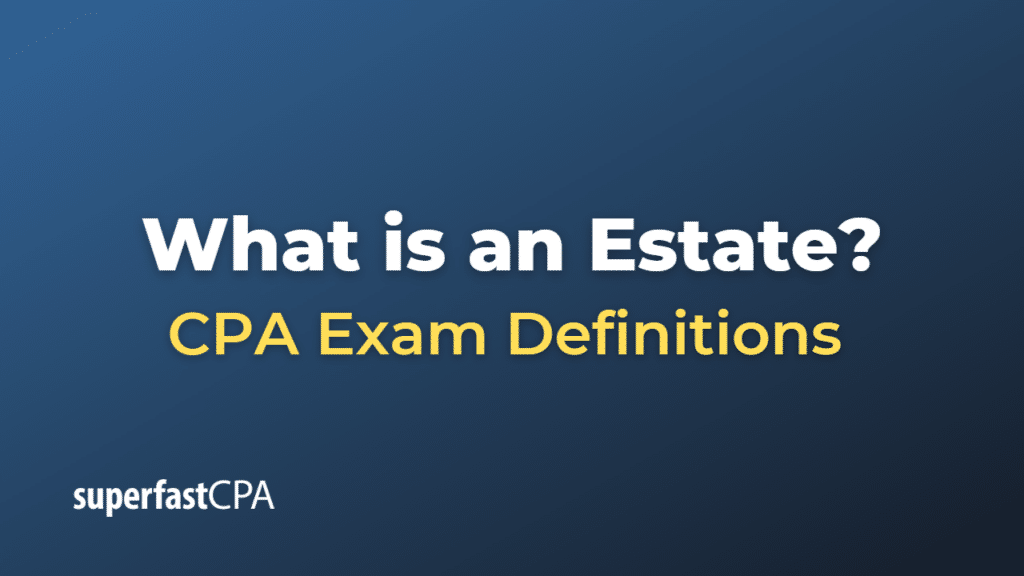Estate
In legal terms, an “estate” refers to everything comprising the net worth of an individual, including all land, possessions, financial securities, cash, and other assets that the individual owns or has a controlling interest in.
In the context of inheritance law, an estate includes all assets of a deceased person, whether real property, personal property, or intangible assets like intellectual property and royalties. Typically, an “estate” is handled in a probate process after a person’s death, where all debts are paid off and the remaining assets are distributed according to a will (if one exists) or according to inheritance laws if no valid will is present.
The term estate is also used in reference to a property in real estate, which typically refers to a sizable property with a large or grand house.
In tax law, especially in the United States, an “estate” can also refer specifically to everything subject to estate tax, also known as “death tax,” which is a tax on the transfer of the “estate” of a deceased person.
As you can see, the term “estate” can mean different things in different contexts, but it generally refers to a collection of property or assets.
Example of an Estate
Let’s look at an example of an “estate” in the context of inheritance law.
Let’s say Mary, a widow with no living children, passes away. She owns a home, a car, has money in several bank accounts, stocks, a retirement account, and various personal belongings such as jewelry, furniture, and artwork.
All of these assets—her home, car, money in the bank accounts, stocks, retirement account, and personal belongings—are considered her “estate.”
Before her death, Mary wrote a will stating how she wanted her assets to be distributed upon her death. She named her sister, Ellen, as the executor of her estate.
After Mary’s death, Ellen, as the executor, will manage the probate process. She will use Mary’s estate to pay off any debts that Mary owed, like a mortgage or credit card debt. After all of Mary’s debts are paid off, Ellen will distribute the remaining assets in Mary’s estate to the beneficiaries named in Mary’s will.
If Mary had died without a will, her estate would be distributed according to the laws of intestacy in her state. Usually, these laws distribute a person’s estate to their closest relatives.
This example highlights how an “estate” encompasses all of an individual’s assets, and how those assets are managed and distributed after the individual’s death.













